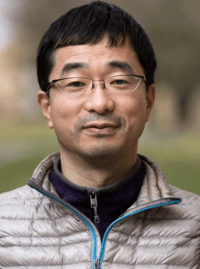Venue : Centre Broca Nouvelle-Aquitaine
 Tomonori Takeuchi, Associate Professor
Tomonori Takeuchi, Associate Professor
Department of Biomedicine,
The Danish Research Institute of Translational Neuroscience (DANDRITE),
Aarhus Institute of Advanced Studies,
Aarhus University,
Denmark
http://dandrite.au.dk/people/team-leaders/tomonori-takeuchi/
Invited by Valentin Nägerl, IINS
Abstract:
Many people have vivid memories of the first dinner date with their partner, including details like the name of the restaurant and the food they had. In contrast, it is very difficult to remember what you had for dinner a few weeks ago. Most everyday memories may be formed automatically in the hippocampus. The key role of this memory system is to filter out unnecessary information, but keep the important memories by a mechanism that involves novelty-associated dopamine release in the hippocampus. Recently, our studies (Takeuchi et al., Nature, 2016) revealed that projections from neurons in the locus coeruleus to the hippocampus can drive novelty-associated enhancement of memory retention through non-canonical release of dopamine in the hippocampus, in line with the synaptic tagging and capture theory of initial memory consolidation. These studies also raise a possibility that the impact of distinct novel experiences which, by their very nature, bear minimal relationship to past experiences (‘distinct novelty’) may differ from novel experiences that share some commonality with past experiences (‘common novelty’) (Yamasaki and Takeuchi, Neural Plasticity, 2017; Duszkiewicz et al., Trends Neurosci, 2019). We now propose that memory of events accompanied by novelty can be selectively retained through two distinct dopaminergic mechanisms, depending on the nature of the novel experience itself.

